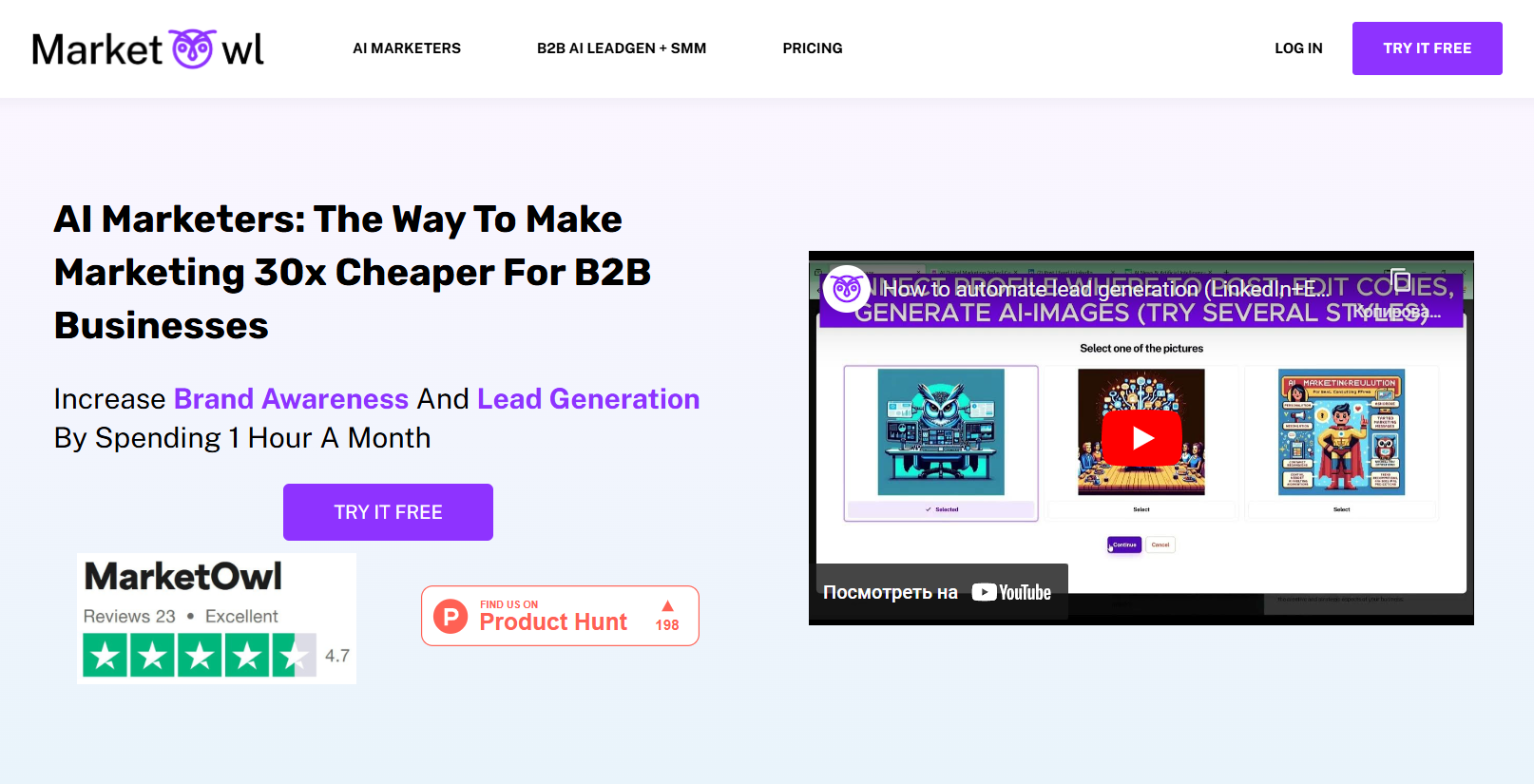My AI Marketing SaaS Has Raised $180K
Who are you and what business did you start?
I’m Mikalai Kudlasevich, the CEO and founder of MarketOwl.
MarketOwl is a virtual team of AI marketers for startups and small to medium-sized businesses (SMBs), specializing in fundraising, scaling sales, and testing market hypotheses.
MarketOwl reduces marketing costs for B2B businesses by 30 times. Our AI lead generation marketer targets leads through LinkedIn and email, providing you with 500 targeted leads monthly. We offer multi-channel communication to increase the likelihood of positive responses, and a hassle-free infrastructure to set up your own mailing system.
Our target audience consists of small businesses with one to five employees. This includes companies currently focused on B2B operations, consulting firms, small outsourcing companies, and startups looking to target other businesses.
Currently, our startup is experiencing significant growth, doubling in size month over month. However, we have only recently completed our first round of investments, which means we started from a low baseline.

Founder-Market Fit
Skills
What skills did Mike Kudlasevich have that led to their success?
How do you come up with the idea for MarketOwl.AI?
I spent 10 years in marketing, with four of those years as a marketing director at various agencies. During this time, I frequently encountered numerous clients –– owners of small and medium-sized businesses –– who could not afford the comprehensive marketing services necessary for survival. I observed many agencies turning away these clients due to their inability to pay for services.
This implementation was a turning point for me. According to the National Federation of Independent Business around 20 million of small businesses in the U.S. are struggling to afford marketing for minimal growth. This problem arises from three main factors: lack of financial resources, lack of time, and lack of expertise to manage marketing independently.
Unfortunately, at least one of these issues is always present. Additionally, about 20% of all small businesses fail within the first year or two, partly because they do not know how to effectively promote the products they aim to bring to market.
MarketOwl’s product concept is not just about incorporating AI marketing into companies strategy; it aims to completely replace traditional marketing with an autonomous AI marketers team. This approach would create...
Disclaimer: The initial draft of this article was compiled by the Starter Story team based on publicly available interviews, podcasts, and other content from the founder.

Download the report and join our email newsletter packed with business ideas and money-making opportunities, backed by real-life case studies.

Download the report and join our email newsletter packed with business ideas and money-making opportunities, backed by real-life case studies.

Download the report and join our email newsletter packed with business ideas and money-making opportunities, backed by real-life case studies.

Download the report and join our email newsletter packed with business ideas and money-making opportunities, backed by real-life case studies.

Download the report and join our email newsletter packed with business ideas and money-making opportunities, backed by real-life case studies.

Download the report and join our email newsletter packed with business ideas and money-making opportunities, backed by real-life case studies.

Download the report and join our email newsletter packed with business ideas and money-making opportunities, backed by real-life case studies.

Download the report and join our email newsletter packed with business ideas and money-making opportunities, backed by real-life case studies.











